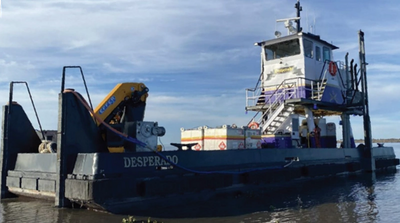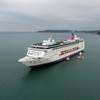Towboat Fire Damage Limited by Crew's Quick Response
When a fire broke out in the engine room of a towboat in Louisiana, the situation could have easily escalated to become much worse, but the quick actions of the vessel's crew helped to contain the blaze and limit the damage significantly, the National Transportation Safety Board (NTSB) said.
The vessel Desperado was transiting in Lake Salvador near Bayou Perot, La., on February 17, 2023, when a ruptured hydraulic hose spraying fuel on a hot engine sparked a fire on board.
An attempt to extinguish the fire with portable extinguishers proved unsuccessful, so the crew secured ventilation and fuel to the engine room and evacuated to a good samaritan vessel. The crew’s prompt actions to remove the fuel and oxygen sources for the fire helped limit the fire damage and extinguish the fire, NTSB investigators concluded. No pollution or injuries were reported, and damage to the vessel totaled $30,000.
NTSB investigators identified issues with how the hydraulic hose had been installed. Contrary to manufacturer guidance, the hose appeared to exceed its bend radius and was not guided with clamps, fittings or adapters and did not have any protective cover.
“Mariners and technicians who design, install, and maintain systems should follow the manufacturer’s guidance on the minimum bend radius for a hydraulic hose,” the report said. “The minimum bend radius is the radius below which an object cannot (or should not) be bent. Bending or flexing a hose to a radius smaller than the minimum recommended, or subjecting a hose to tension or torque, can place excessive stress on the hose and severely reduce the ability of the hose to withstand pressure. Actions to avoid hose damage or failure include clamping a hose in place to provide support, rerouting a hose assembly by installing fittings and adapters, and using a hose with more reinforcement.”















